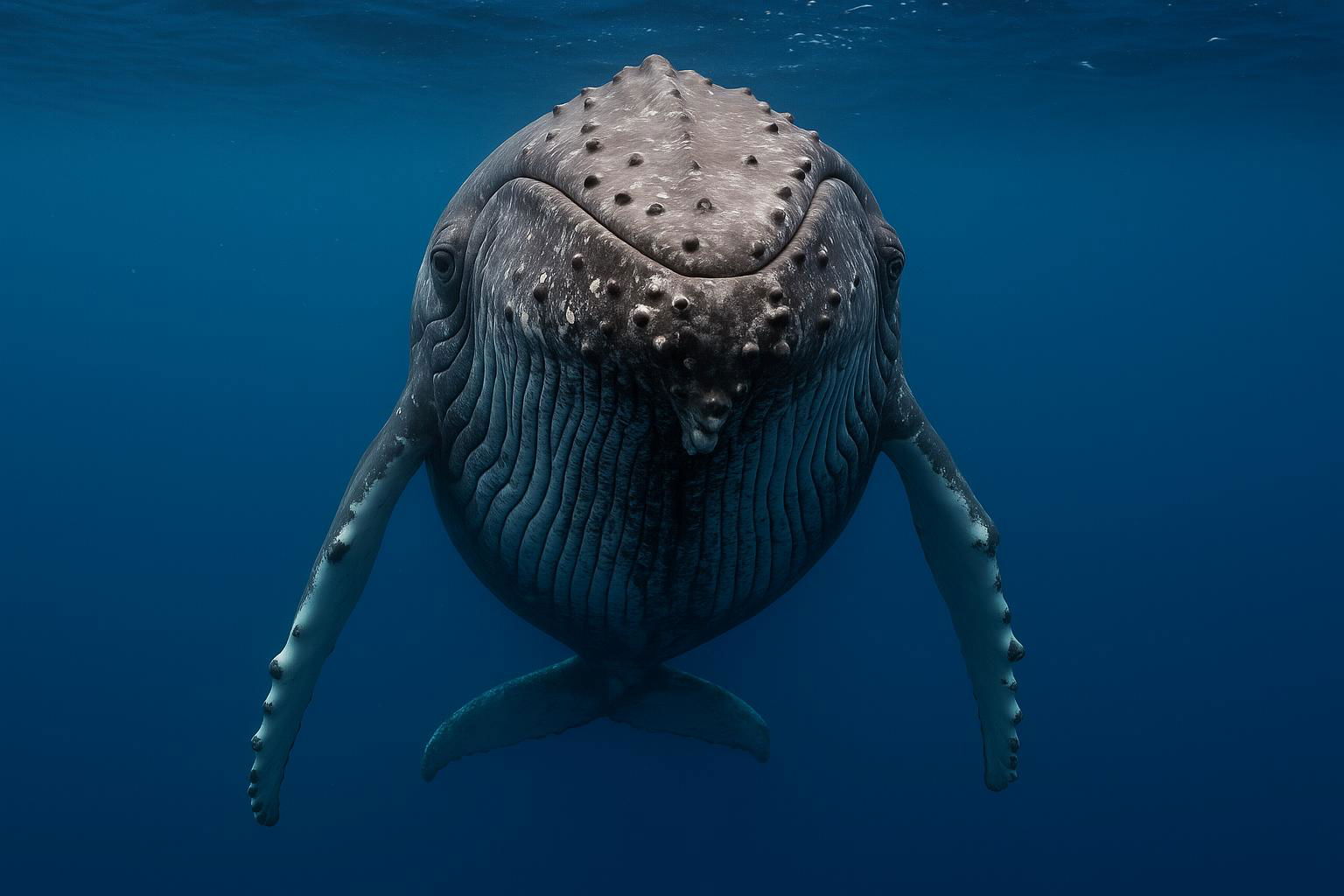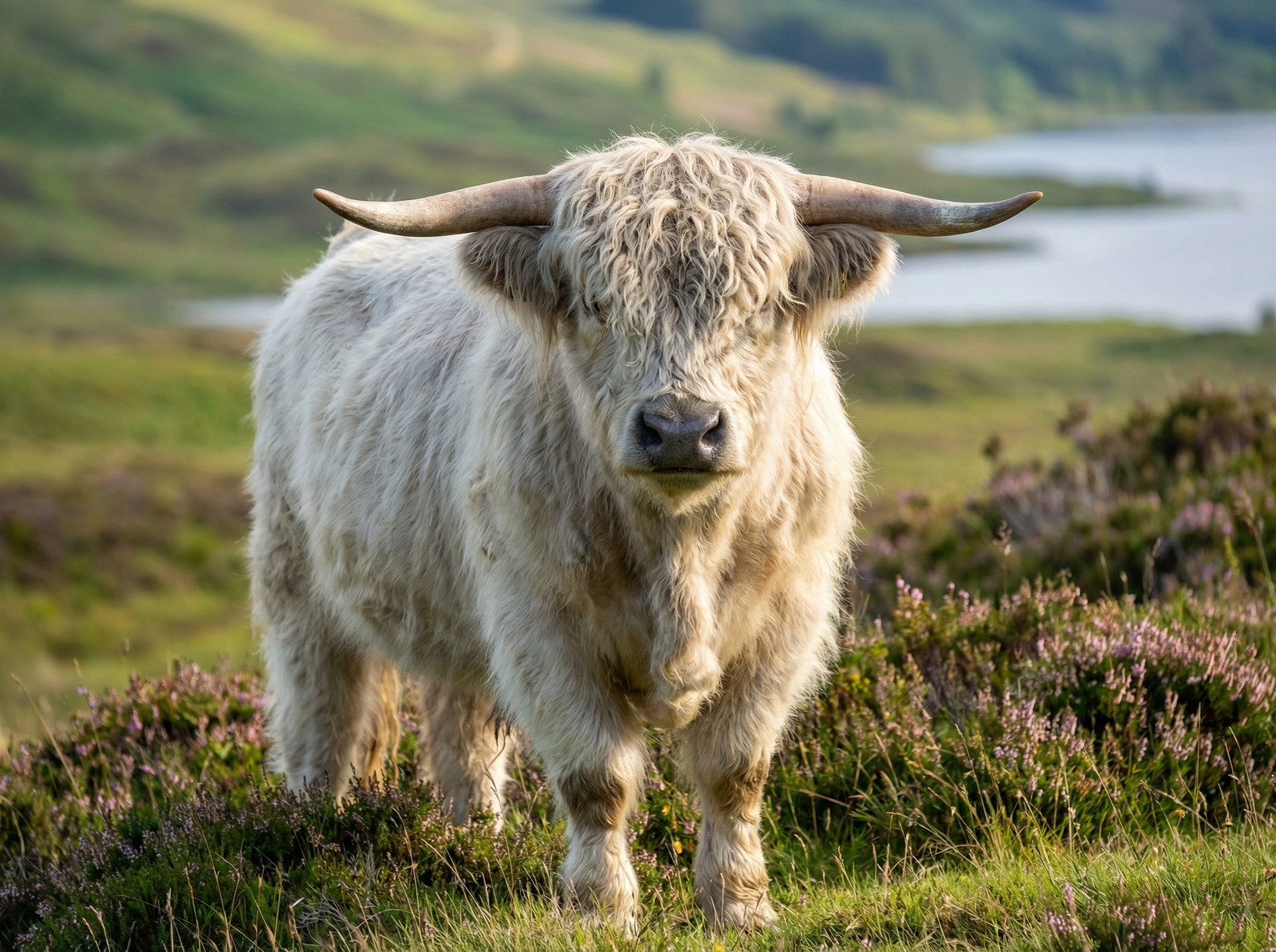
Humpback Whale
Megaptera novaeangliae
The Humpback Whale (Megaptera novaeangliae) is a majestic marine mammal known for its impressive size, acrobatic behavior, and complex vocalizations. Adults typically measure between 39 to 52 feet in length and can weigh up to 40 tons. These whales are easily recognizable by their distinctively long pectoral fins, which can span up to one-third of their body length, and their knobbly head and jawline adorned with tubercles.
Found in oceans worldwide, humpback whales are highly migratory, covering vast distances between their summer feeding grounds in polar regions and winter breeding grounds in tropical or subtropical waters. Their diet mainly consists of krill and small fish, coordinated through sophisticated feeding techniques like bubble netting.
Renowned for their elaborate songs, primarily sung by males during the breeding season, these vocalizations play a crucial role in communication and mate attraction. Humpback whales are also celebrated for their energetic breaching displays, often leaping entirely out of the water.
Once hunted to the brink of extinction, humpback whale populations have rebounded significantly due to international conservation efforts. Today, they continue to capture the imagination of researchers and whale watchers alike, symbolizing the resilience of marine life and the importance of protecting ocean ecosystems.

 All Species & Breeds
All Species & Breeds
 Highland Cattle
Highland Cattle
 Miniature Donkeys
Miniature Donkeys
 All Species Directory
All Species Directory
 Highland Cattle in Virginia
Highland Cattle in Virginia
 Miniature Donkeys in Texas
Miniature Donkeys in Texas












